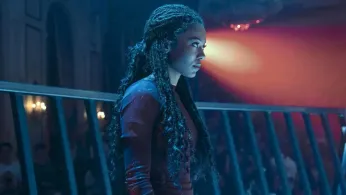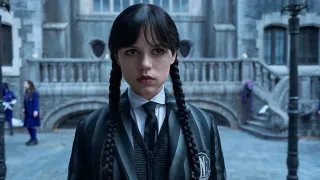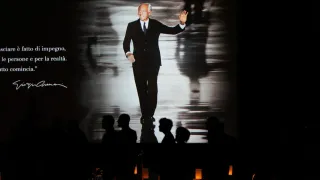
Sep 7
"Gen V Returns: The Ultra-Queer Superhero Series Breaking Boundaries on Prime Video"
READ TIME: 3 MIN.
"Gen V," the spinoff of Prime Video’s hit series "The Boys," premieres its highly anticipated second season on September 17, 2025, reaffirming its reputation as one of the most inclusive and boundary-pushing superhero shows on television. Set at the fictional Godolkin University School of Crimefighting, the series follows a group of young superheroes as they train to become the next generation of crimefighters. Unlike its predecessor, "Gen V" foregrounds queer identities, with multiple queer characters featured among the lead cast, and storylines that address queerness, gender fluidity, and the complexities of navigating identity in a hyper-competitive, media-driven world .
Season two of "Gen V" continues to center on characters whose identities reflect the breadth and diversity of the queer community. Marie Moreau, one of the main protagonists, is openly bisexual, and her character arc explores romantic relationships with people of multiple genders. Emma Meyer, another central figure, is depicted as bisexual as well, with her storylines delving into the nuances of desire, friendship, and self-acceptance. Most notably, the character of Jordan Li is portrayed as gender-shifting, alternating between masculine and feminine forms, a narrative device that allows the show to examine gender identity and fluidity in a literal, superheroic context .
The casting behind "Gen V" also reflects this commitment to authenticity. The role of Jordan Li is played by two actors—one male, one female—to represent the character’s transformations, and both actors have spoken publicly about the importance of gender representation in their performances . This approach has been lauded by queer advocacy groups as a meaningful step toward visibility for gender-nonconforming and transgender people in mainstream media .
"Gen V" is not content with simply including queer characters as sidekicks or comic relief. Instead, the show places their experiences and struggles at the center of its narrative. The campus environment at Godolkin University is one rife with competition, manipulation, and the pressures of public image—parallels that resonate with the real-world experiences of many queer youth navigating their own paths to self-acceptance and community.
The series has been commended for depicting the challenges queer people face in environments that are ostensibly progressive but still rife with institutionalized bias, microaggressions, and the pressure to conform . In a pointed twist, the superpowers of each character are often metaphors for their struggles with identity: Jordan Li’s ability to shift gender at will serves as an allegory for the real-world experience of gender fluidity, while Marie and Emma’s arcs deal with the intersection of queerness and trauma.
Since its debut, "Gen V" has been embraced by both critics and audiences for its bold storytelling and commitment to diversity. The first season was praised for its nuanced portrayal of queerness and its refusal to shy away from the messiness of coming-of-age experiences, especially for those who exist at the intersection of multiple marginalized identities . Season two promises to deepen these themes, with early reviews noting that the show continues to push boundaries in its depiction of sexuality, gender, and power, while still delivering the dark humor and action that fans have come to expect .
Queer viewers and advocacy organizations have highlighted "Gen V" as a model for what authentic queer representation can look like on mainstream platforms. The show’s creative team includes queer writers and producers, ensuring that storylines are informed by lived experience and avoid harmful stereotypes . This has led to a strong sense of ownership and excitement within the community, with many fans taking to social media to express how much it means to see characters like themselves portrayed as powerful, multidimensional heroes.
The return of "Gen V" comes at a time when the entertainment industry is facing increased scrutiny over its treatment of queer characters and creators. While there have been notable strides in recent years, advocates note that queer representation is still disproportionately focused on cisgender gay men, with transgender, non-binary, and bisexual characters remaining underrepresented . "Gen V" stands out for its focus on characters whose identities reflect the diversity of the queer community, as well as its willingness to explore the intersections of queerness, race, and power.
In interviews, showrunners have emphasized their commitment to telling stories that resonate with a global audience while remaining true to the lived experiences of queer people. They cite collaboration with sensitivity readers and queer consultants as key to ensuring authenticity and avoiding tokenism .






